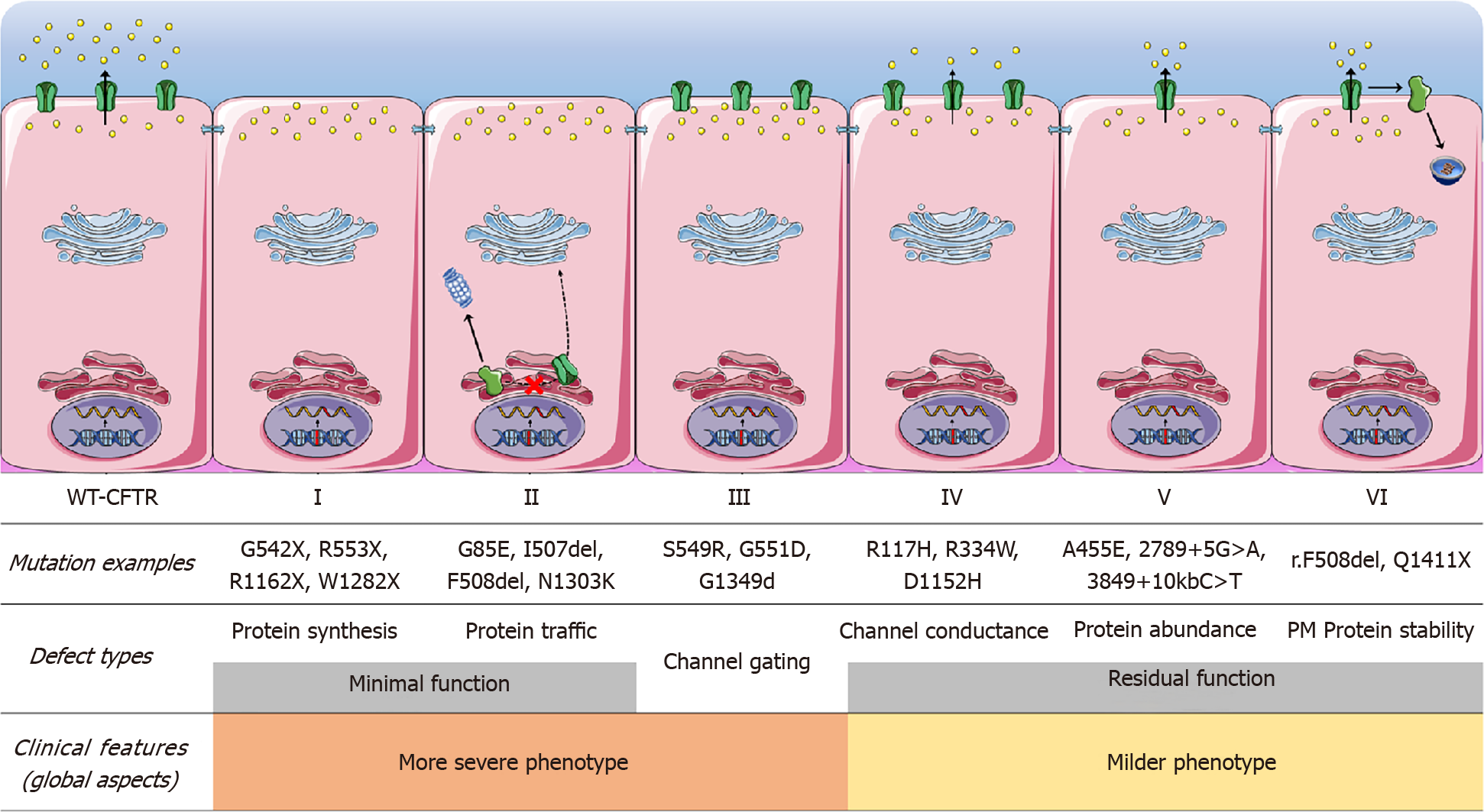Copyright
©The Author(s) 2021.
World J Hepatol. Nov 27, 2021; 13(11): 1727-1742
Published online Nov 27, 2021. doi: 10.4254/wjh.v13.i11.1727
Published online Nov 27, 2021. doi: 10.4254/wjh.v13.i11.1727
Figure 1 The functional consequences of cystic fibrosis-causing variants have been grouped into six classes.
Class I mutations lead to no protein synthesis or translation of shortened, truncated forms. They result from splice site abnormalities, frameshifts due to deletions or insertions, or nonsense mutations, which generate premature termination codons. Class II mutations lead to a misfolding protein that fails to achieve conformational stability in the endoplasmic reticulum and then does not traffic to the plasma membrane (PM), being instead prematurely degraded by proteasomes. Class III mutations lead to a gating channel defect due to impaired response to agonists, although the protein is present at the PM. Class IV mutations lead to a channel conductance defect with a significant reduction in cystic fibrosis transmembrane conductance regulator (CFTR)-dependent chloride transport. Class V mutations lead to a reduction in protein abundance of functional CFTR due to reduced synthesis or inefficient protein maturation. They result from alternative splicing, promoter or missense mutations. Class VI mutations lead to reduced protein stability at the PM, which results in increased endocytosis and degradation by lysosomes, and reduced recycling to the PM. PM: Plasma membrane.
- Citation: Valamparampil JJ, Gupte GL. Cystic fibrosis associated liver disease in children. World J Hepatol 2021; 13(11): 1727-1742
- URL: https://www.wjgnet.com/1948-5182/full/v13/i11/1727.htm
- DOI: https://dx.doi.org/10.4254/wjh.v13.i11.1727









